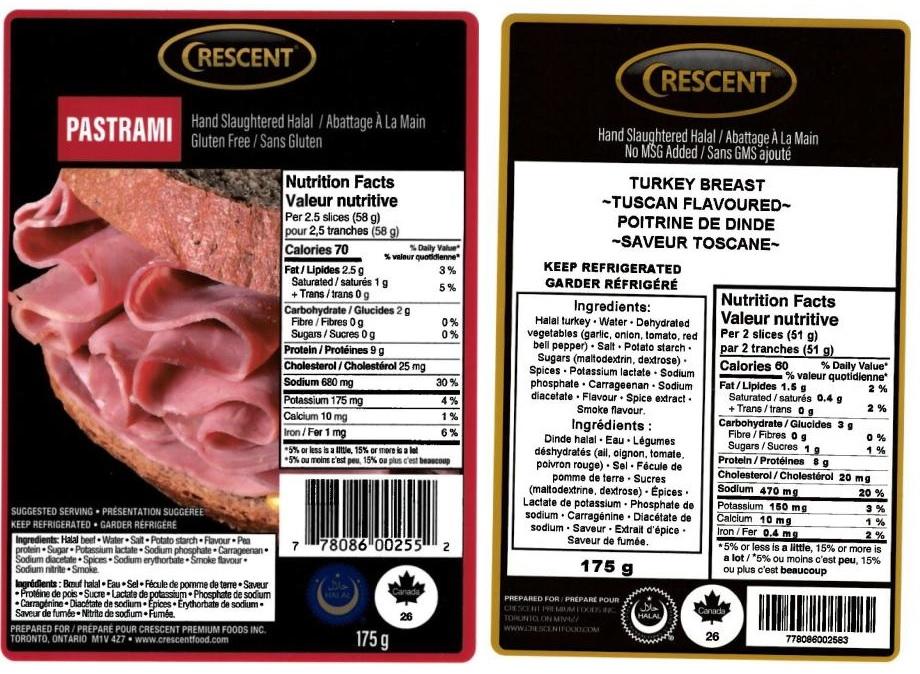Turkey breast and pastrami packages sold in Canadian supermarkets were recalled on Aug. 11 due to possible listeria contamination. The products, produced under the Crescent brand name, were sold in Ontario. Crescent worked with the Canadian Food Inspection Agency (CFIA) to remove the recalled product from store shelves. Listeria is a serious infection caused by eating food contaminated with Listeria monocytogenes.
The recall covers 175g packages of Crescent Pastrami with UPC 7 78086 00255 2 and best-by code 22 OC 03, and 175g packages of Crescent Turkey Breast – Tuscan Flavored with UPC 7 78086 00258 3 and best-by code 22 SE 20. The company behind the products, Tony’s Mears Ltd., initiated the recall on Aug. 11. There have been no reports of illnesses connected to the issue. The CFIA is investigating and working with the industry to pull recalled products from store shelves. Consumers with recalled products should not eat them. The labels of the recalled products are below.
Videos by PopCulture.com

The FDA and U.S. Centers for Disease Control and Prevention often issue food safety alerts about listeria contamination of foods in the U.S. as well. On Aug. 4, the CDC warned of a listeria outbreak linked to Big Olaf brand ice cream available at retailers, restaurants, and senior homes in Florida, as well as a story in Fredericksburg, Ohio. A recall has already been initiated for Big Olaf ice cream products with expiration dates through June 30. One death and 25 illnesses have been linked to the outbreak. The investigation into the outbreak is ongoing and consumers with recalled Big Olaf products are wanted to not eat them.
Earlier this month, Primal Pet Foods expanded a dog food recall because of a potential listeria infection. The recall covers Raw Frozen Primal Patties for Dogs Beef Formula, sold in Maryland, Georgia, Texas, and British Columbia in Canada. The recalled packages have “05/22/23” as a best-before date and lot code number “W10068709.”
Symptoms of listeria infection can depend on the person. People who are pregnant, newborns, adults 65 or older, and people with weakened immune systems are among the most susceptible to illness. Others can be infected, but rarely become seriously ill, according to the CDC. Some of the symptoms for people who are not pregnant include fever, flu-like symptoms, headache, stiff neck, confusion, loss of balance, and seizures. People who are pregnant may experience fever and flu-like symptoms. The symptoms can begin to show within two weeks of eating listeria-contaminated food. Listeria outbreaks are often linked to produce and dairy products.








